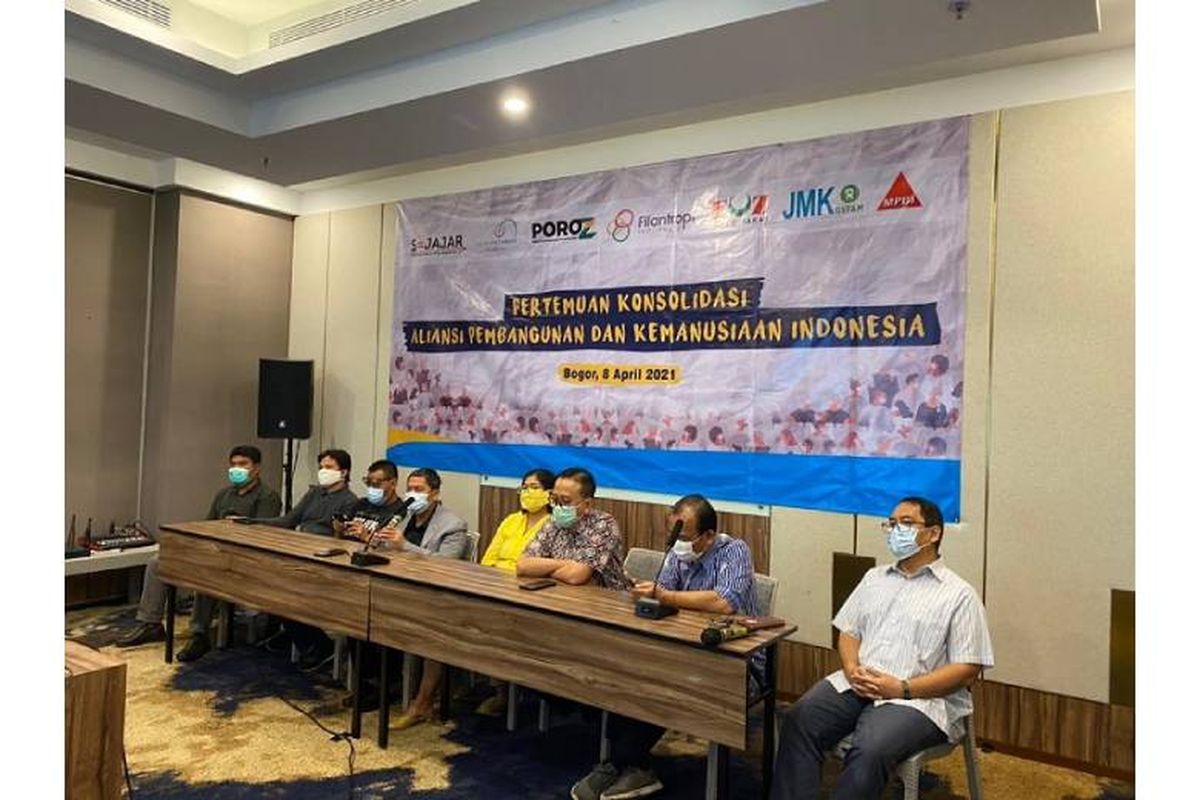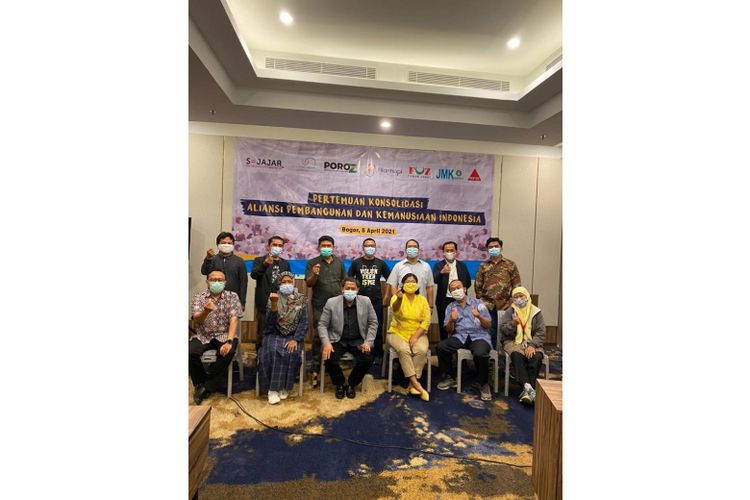APKI, a Collaboration of Mass Organizations and NGOs in Indonesia to Aid the Government in Humanitarian Problems

BOGOR, KOMPAS.com – A number of community organizations (ormas) and non-governmental organizations (NGOs) officially established the Indonesian Humanitarian Development Alliance (APKI) in Bogor, Thursday (8/4/2021).
The networks of mass organizations and NGOs that co-founded APKI are the Zakat Forum (FOZ), Humanitarian Forum Indonesia (HFI), Indonesia Philanthropy Association (PFI), Indonesian Society for Disaster Management (MPBI), Humanitarian Knowledge Hub Oxfam (JMK Oxfam), Association of Zakat Management Organizations (Poroz), and the Secretariat of the Inter-Community Organization Network-NGO Network (Sejajar).
For information, APKI is an organization focusing on the humanitarian sector. This organization will focus on aiding the public, especially those from vulnerable communities, who are affected by the pandemic and natural disasters.
Currently, APKI accommodates approximately 297 organizations at the national level, 600 organizations at the regional level, along with 150 individual members.
The APKI representative from Sejajar, Puji Pujiono, said that the founding of APKI was purely humanitarian-based.
“The pandemic and disaster situations that currently occur one after another cause a deep and widespread impact, especially for those who are marginalized. We don’t think the government alone can handle these problems. That’s why this is the time for the civil society like us to prove useful in the public space,” said Puji through the virtual press conference attended by Kompas.com.
Another APKI member from HFI, Rahmawati Husein, welcomed the cooperation in the humanitarian sector.
Rahmawati said the existence of APKI could be part of the solution to assist the government in overcoming problems in the fields of humanitarian and development.
"In fact, currently, we can already see many community organizations or NGOs actively aiding the community, especially during the pandemic of Covid-19. I hope that this (community organizations and NGOs) partnership can unite their movements and steps to bring forth significant changes," she said.
Rahmawati also hoped that APKI will be able to inspire the international community so that it can influence global policies.
"In the future, Indonesia should not only be seen as an object of global policies, but also have an influence on said policies, including national and regional," she said.
 APKI members in the press conference event
APKI members in the press conference eventApart from aiming towards global influence, APKI also focuses on promoting leadership in the national scope.
According to Rahmawati, currently the community organizations are already highly capable, but their roles need to be more visible and brought to the forefront.
In line with Rahmawati’s statement, HFI Chairman Muhammad Ali Yusuf said that the APKI could help the government. Moreover, the government often emphasizes on pentahelix and collaborative management. However, according to Ali, the emphasis has no clear direction.
"What we need now is (clarity) on the intended strategy and mechanism from the government. This is necessary to be able to overcome problems in the fields of humanitarian and development," said Ali.
He added that that the central and local governments are often inconsistent in implementing existing policies. Even more, the policies often create gaps.
"Oftentimes (the government) does not side with vulnerable people. Hence, hopefully the pentahelix can be fully realized instead of a mere slogan. We also hope for more collaborations in the pentahelix scope so that the current humanitarian problems can be resolved quickly," said Ali.
During the occasion, PFI representative Hamid Abidin hoped that APKI would be able to initiate philanthropic activities.
Apart from being a source of funding for APKI, these activities aim to provide financial support for community organizations and NGOs that were forced to stop operating due to the pandemic.
"More than half of community organizations and NGOs in Indonesia are under threat. Such situation arises from the suspension of international cooperation programs and limited alternative funding,” Hamid said.















